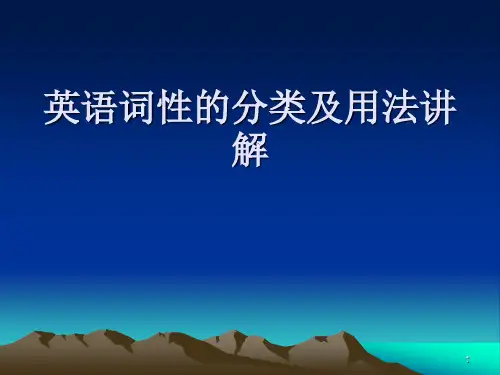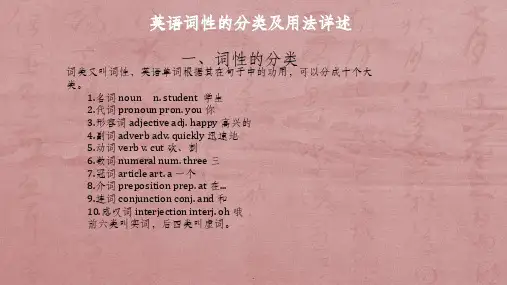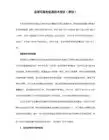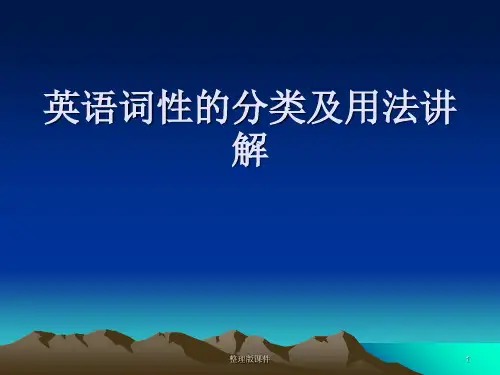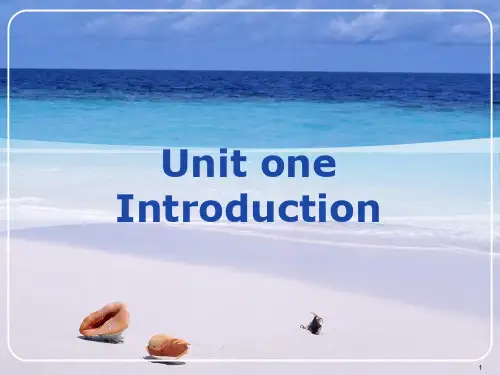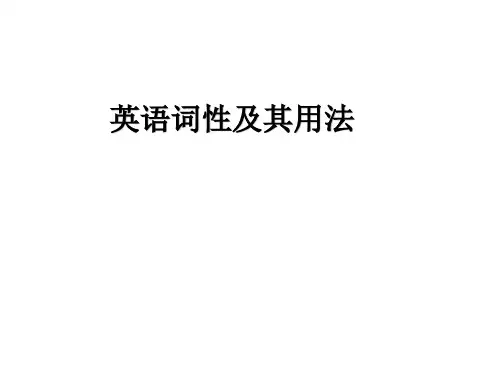English是直接宾语) 不及物动词( intransitive verb ): The sun rises. He works hard.
2. 动词(verb)
(2)连系动词: be动词(is, am, are, was, were, have/has been) 感官系动词(feel,smell,taste,look,sound):后面一般加形容词 变化系动词(become, get, grow, turn) :后面一般加形容词
可 数 性 : 可 数 名 词 ( countable nouns)& 不 可 数 名 词 ( uncountable nouns) ①冠词的使用 ②单复数 s/es ③谓语动词的搭配 *集合类名词:council ,government, group, jury, team, family
英语词性词类详细讲解
3. 形容词(adjective)
用来表示人或事物的性质、状态和特征的词称为形容词
以-able, -al, -ful, -ish, -less, -ous, -y等后缀结尾的词
-ed 人的感受:
tired, tiring; amazed, amazing; fascinated, fascinating;
• “不怕太阳晒,也不怕那风雨狂,只怕先生骂我 笨,没有学问无颜见爹娘 ……”
• “太阳当空照,花儿对我笑,小鸟说早早早……”
英语词性词类详细讲解
1.名词(noun,缩写式为n)
普通名词(common noun): 是某一类人、事物、某种物质或抽象概念的名 称。 luggage, success, traffic 专有名词(proper noun):是特定的某人、地方或机构的名称。专有名词的 第一个字母必须大写。 Tom, China, A Tale of Two Cities, March, Saturday

